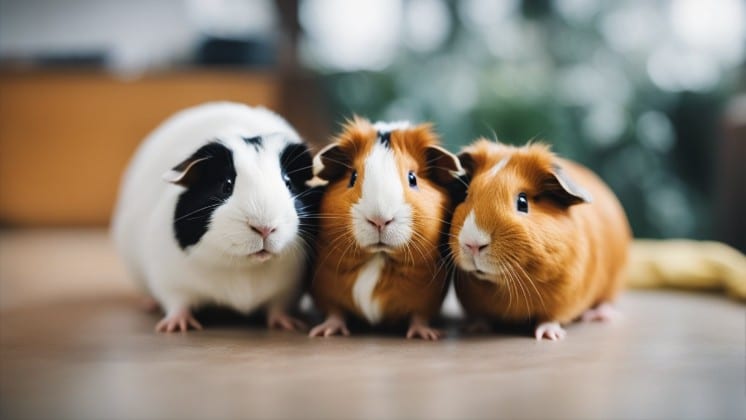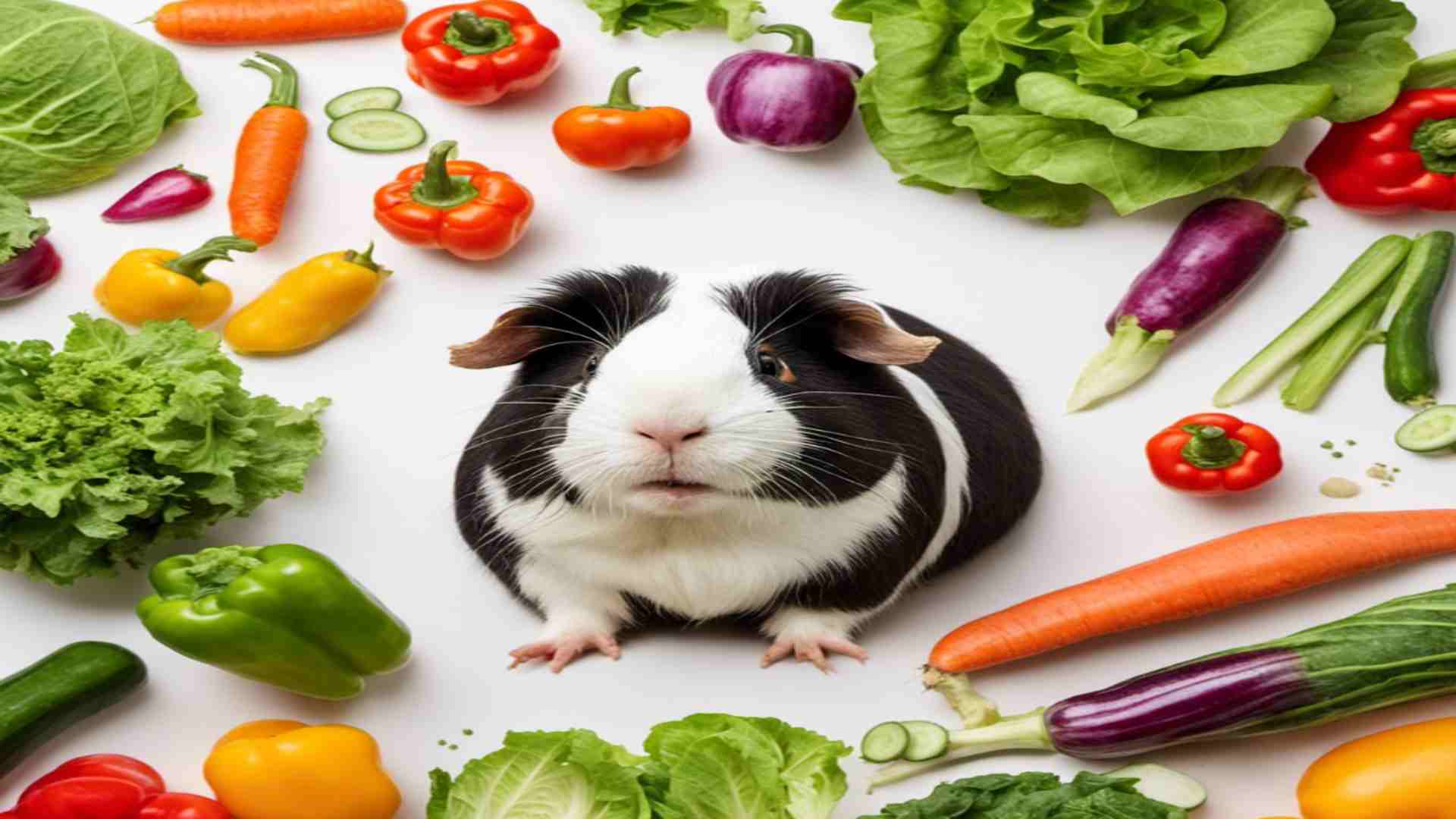Guinea pigs, also known as cavies, are beloved pets. They are known for their cute looks and gentle ways. If you’re thinking about getting one, you might want to know how long they live. It’s important to grasp their lifespan and what can affect it for the best care.
On average, guinea pigs live for 5-6 years. Yet, some might live a bit longer or shorter. What makes the difference? Their diet, where they live, and how much they interact with others all matter.
Nutrition is key for a guinea pig’s health. They need lots of fiber, which comes from hay, fresh veggies, and some pellets. Vitamin C is also a must for their diet, as they can’t make it themselves. This keeps them from getting sick.
Setting up the right home for your guinea pig is also very important. These animals love company and do best when they have a friend. Being with other guinea pigs keeps them happy, healthy, and may make them live longer.
Now you know the basics about guinea pig care and their lifespan. It’s time to start a great experience as a guinea pig owner. There’s more to learn about these amazing animals, like how to help them have the best life possible!
Key Takeaways:
- On average, guinea pigs live for 5-6 years.
- Factors such as diet, environment, and socialization can influence their lifespan.
- A high-fiber diet supplemented with vitamin C is crucial for their health and longevity.
- Guinea pigs thrive when kept in pairs or small groups.
- Providing them with proper care and attention is key to ensuring their longevity.
Guinea pig characteristics and social behavior
Guinea pigs, or ‘cavies’, are from the Andes Mountains in South America. They are known for their cute, round bodies, short legs, and no tails. But, what really makes them special is their love for friends.
In the wild, they live with 5-10 others and become very close. They talk and understand each other using sounds and movement. Being with others makes guinea pigs very happy.
Without friends, guinea pigs might feel bored and lonely. This could make them less healthy. So, it’s great to keep them with others of their kind. This way, they get to be themselves and have fun every day.
The Social Life of Guinea Pigs
Guinea pigs are always on the move, enjoying about 20 hours of fun daily. Their love for life, exploration, and taking care of each other is heartwarming. Watching them is truly a delight.
They show affection by gently touching noses, keeping each other clean, and sometimes making soft sounds. These actions make their family bonds stronger. It shows how much they care for their friends.
When introducing guinea pigs, slow and careful steps are key. Just like people, they have their own ways. Peaceful meetings and friendships are things to watch out for.
The Importance of Companionship
Having a friend or group is key to guinea pigs living well. It keeps them sharp, happy, and away from solitude. They learn a lot from each other and belong in a group.
For a happy group, create a good home. Space, toys, and places to eat are important. This helps them live together well. They must have all they need to share and be fair to each other.
New friends should join the group slowly and with care. Start by letting them get used to each other’s smell. Then, let them meet in a friendly way, always watching over them.
By focusing on their need for friends, you can make your guinea pigs’ lives richer. They will have fun, learn, and be happy. Having each other makes a big difference in their lives, and yours too.
| Guinea Pig Characteristics and Social Behavior |
|---|
Lifespan variations and factors affecting longevity
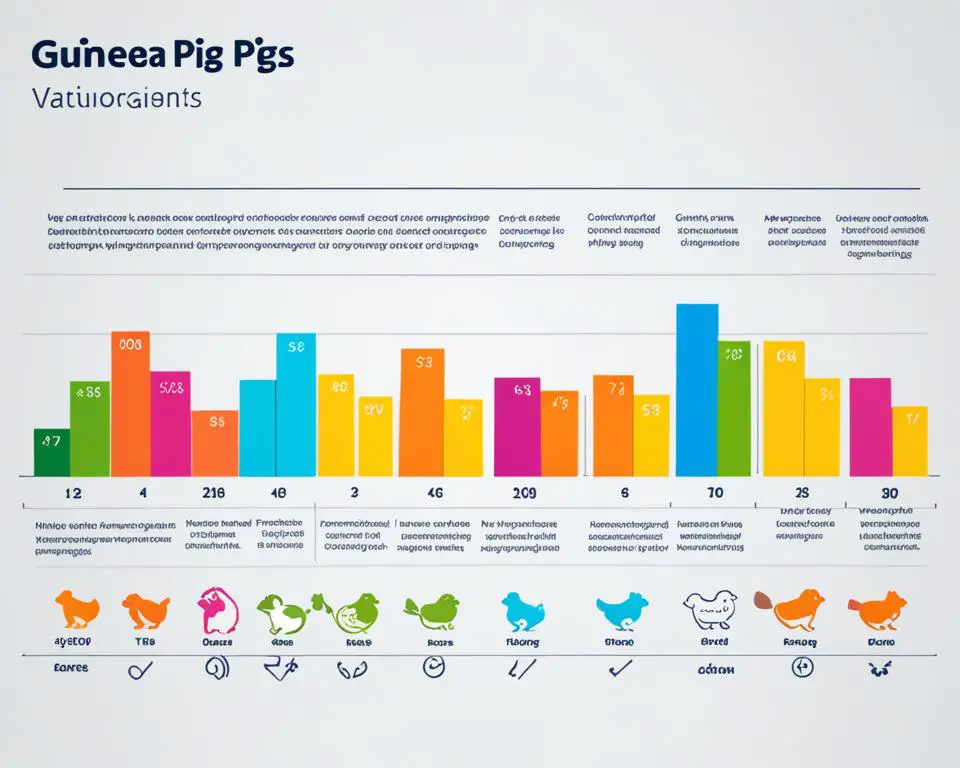
Guinea pigs usually live 5-6 years, but this can vary. Things like genes, what they eat, and where they live affect how long they’ll live.
Genes really matter for a guinea pig’s lifespan. Just like in people, some might have genes for a longer life. Others might not.
Eating right is key for a guinea pig to be healthy and live longer. They need lots of fiber. Feed them grass hay for their gut, fresh veggies for vitamins, and some pellets for extra nutrients. A balanced diet keeps them healthy and happy.
Where they live is also very important. They should have a big, safe space to run around. This keeps them from getting too fat. The right temperature (between 65-75°F) and regular check-ups help them stay healthy.
Guinea pigs need friends. Having another guinea pig around or lots of human time is good for them. It makes them feel loved and keeps them well.
“Proper nutrition, a suitable environment, and social interaction are essential factors in extending the lifespan of guinea pigs.”
Factors Affecting Lifespan Variations:
- Genetic factors
- Diet and nutrition
- Environmental conditions
By knowing and using these points, guinea pig owners can help their pets live longer. They will enjoy the friendship of their guinea pigs for many years.
Lifespan comparisons: domestic vs. wild guinea pigs
Guinea pigs living in homes or in the wild have very different lifespans. Those kept as pets can live longer. Wild guinea pigs have a shorter lifespan in their natural environment.
Domestic guinea pigs can live 5-7 years. Some can live even longer with the right care. Wild guinea pigs, however, usually live only 1-4 years. Several reasons lead to this huge gap in life expectancy for these cute animals.
The main reason for this difference is the safety of domestic guinea pigs. Predators are a big threat to those in the wild. Also, wild guinea pigs deal with tough weather, find food less easily, and don’t have doctors for animals like domestic guinea pigs do.
The Impact of Domestication
Domestication significantly helps increase the lifespan of guinea pigs. It provides them with care, food, and safety from dangers. This makes their life easier and healthier, leading to a longer life.
Domestic guinea pigs get a balanced diet. They eat hay, vegetables, and guinea pig food made especially for them. This diet gives them all the nutrients they need to stay healthy and live longer.
“Domestication has provided guinea pigs with a safer and more controlled environment, resulting in an increased lifespan.”
Individual Care and Genetic Factors
Guinea pigs can live different lengths of time, even if they’re of the same breed. This varies based on their genetics, the care they get, and their surroundings.
For domestic guinea pigs, how long they live depends on things like what they eat, how much they play, who they spend time with, and their healthcare. The actions of their owners play a big part in their health and longevity.
| Factors | Domestic Guinea Pigs | Wild Guinea Pigs |
|---|---|---|
| Predation | No threat from predators | Constant threat reduces lifespan |
| Environment | Safe and controlled | Harsh conditions affect lifespan |
| Diet | Quality nutrition available | Food scarcity impacts lifespan |
| Healthcare | Access to veterinary care | Limited healthcare availability |
The table above shows how different aspects impact the lifespan of domestic and wild guinea pigs. But remember, each guinea pig is unique, and their lifespan can vary based on care and other factors.
In summary, domestic guinea pigs usually live longer than wild ones because they have a safer, more controlled life. However, every guinea pig needs special care to be healthy and happy, regardless of where they live.
Guinea pig reproductive cycle and its impact on lifespan
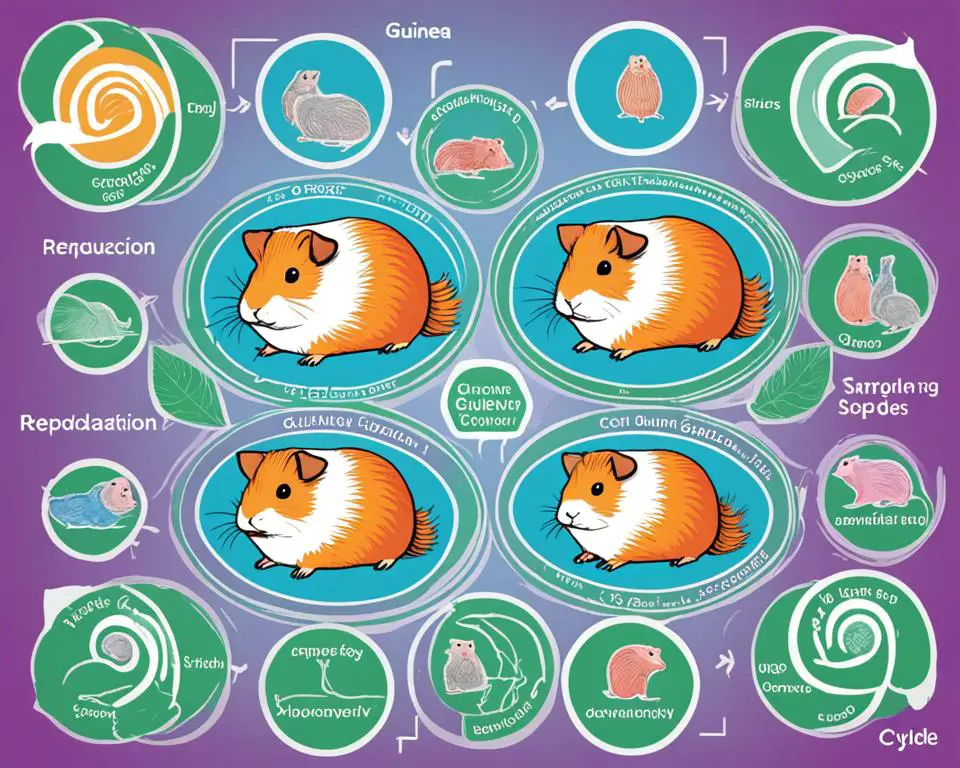
Female guinea pigs, or sows, have a special reproductive cycle. This cycle can affect how long they live. Knowing about this cycle is key for taking good care of guinea pigs.
Sows’ pelvises fuse between 9 and 12 months old. This means it’s risky for them to breed after this time. Breeding can harm a sow’s health and shorten her life. Experienced people or vets should handle breeding to avoid problems at birth.
“The health of both the sow and the offspring should always be the top priority,” says Dr. Sarah Thompson. She specializes in caring for small animals. Dr. Thompson stresses that breeding must be done carefully to protect guinea pigs.
“By prioritizing responsible breeding and proper medical care, we can contribute to a longer and healthier life for guinea pigs.”
If breeding is not in your plans, spaying or neutering your guinea pigs is a good idea. This stops them from getting pregnant. It also prevents health problems related to breeding.
Choosing healthy mates is important for breeding. It can lower the chance of babies having health issues. This helps the baby guinea pigs live longer and healthier lives.
Expert Tip: Ensuring a Healthy Reproduction
Dr. Thompson advises keeping good records of when your guinea pigs mate and how they are doing. This info is useful if there are any health problems during birth. Plus, regular vet check-ups are a must to ensure the sow’s and babies’ health.
Understanding the reproductive cycle is crucial in making the right choices about breeding. It helps guinea pig owners provide the best care for their pets.
Check the table below for a quick look at the guinea pigs’ reproductive cycle:
| Age | Reproductive Stage | Key Considerations |
|---|---|---|
| 0-9 months | Young Sow | Sows don’t usually breed at this age. |
| 9-12 months | Prime Breeding Age | Breeding has more risks but they are ready sexually. |
| 12+ months | Post-Fused Pelvis | Breeding is risky and should be avoided. |
| Any Age | Spaying/Neutering | For guinea pigs not meant for breeding. |
Knowing the guinea pigs’ reproductive cycle helps keep them healthy and live longer. Making smart choices about breeding is essential. It ensures the well-being and long life of your guinea pigs.
Factors influencing breed-specific lifespan
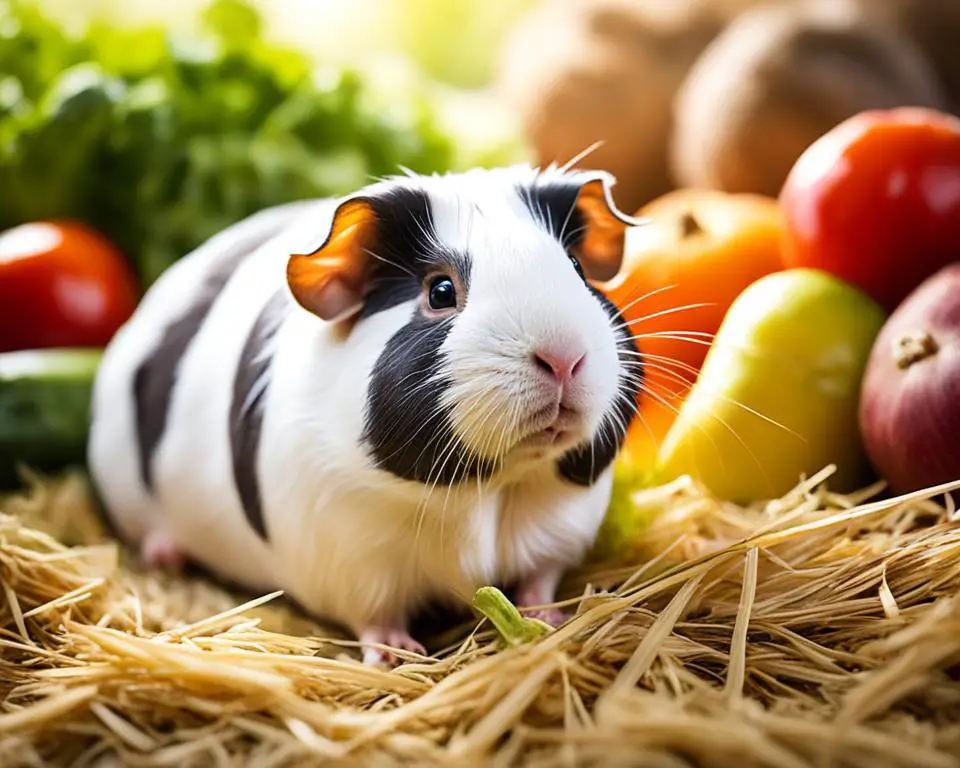
Guinea pig breeds have different lifespans based on various factors. The type of breed, such as hairless or longhaired, plays a big part.
Hairless Breeds: For instance, there are hairless guinea pigs like the skinny breed. These unique animals live on average 7 to 8 years. Even though they have no fur, they are still very charming.
Longhaired Breeds: Conversely, longhaired guinea pigs might not live as long, with an average of about 4 years. Their beautiful hair needs a lot of care to keep it that way.
Breeds that live longer or shorter lives are not just about their fur. Things like their genes, what they eat, the place they live, and how they’re cared for all matter. We need more studies to really get why some breeds live longer than others.
To help guinea pigs live longer, they need the right care, food, and home. This means giving them a balanced diet, seeing the vet often, letting them move around, keeping them mentally active, and letting them be with other guinea pigs. Doing so helps guinea pigs have a great and long life.
| Breed | Average Lifespan |
|---|---|
| Hairless (e.g., skinny guinea pig) | 7-8 years |
| Longhaired | Around 4 years |
Tips for extending a guinea pig’s lifespan
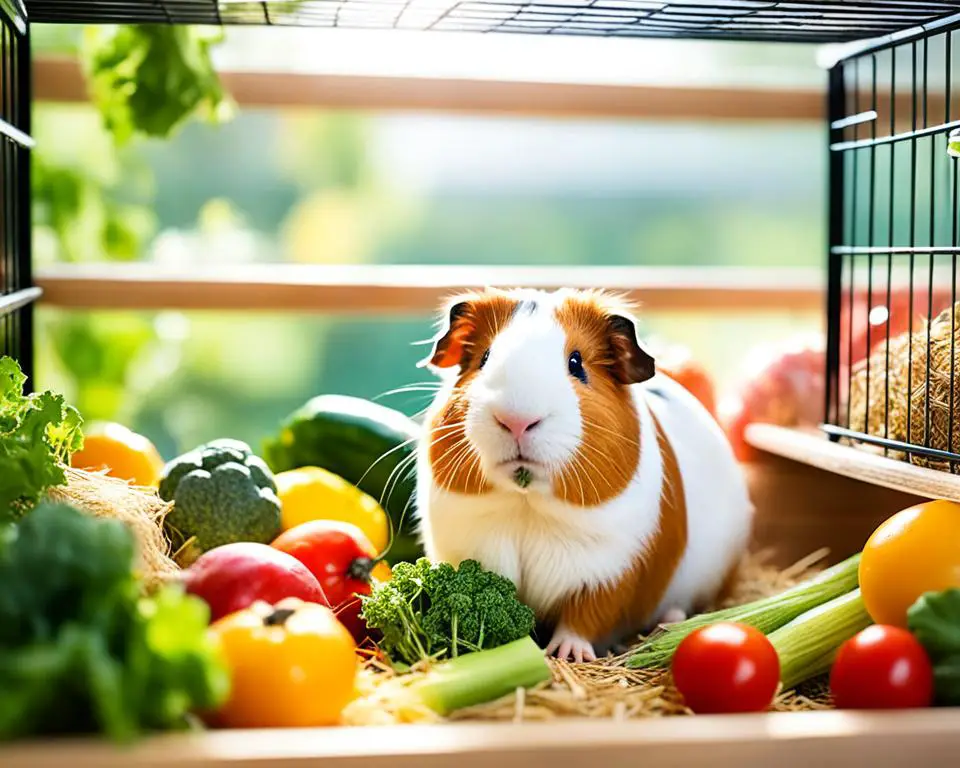
Extending a guinea pig’s life is all about the care you give them. Here are tips for making their life longer:
1. Balanced Nutrition
A balanced diet is key to a guinea pig’s health and years. Give them unlimited fresh grass hay, like timothy hay, for fiber. Also, add fresh veggies such as carrots and leafy greens for vitamins. And don’t forget a few guinea pig pellets. This diet keeps them healthy and living longer.
2. Vitamin C Supplementation
Ensure your guinea pig gets enough vitamin C since they cannot make it themselves. Without enough, they might get sick. Include foods like citrus fruits and kale, or give them vitamin C supplements. This helps keep them healthy and prevents scurvy.
3. Regular Veterinary Check-ups
It’s important for guinea pigs to see the vet every year. This checks their weight, teeth, and overall health. It’s a way to catch any problems early. This means a better, longer life for them.
4. Routine Grooming
Grooming is not just about looks for guinea pigs. It keeps them happy and healthy too. Gently brush their fur to keep it nice and clean. Also, trim their nails to prevent injury. This helps with both their physical and mental health.
5. Safe and Stimulating Environment
Guinea pigs need a safe and fun place to live. Make sure their home is hazard-free and add things for them to chew and hide in. They also need lots of space to move around. This includes time outside of their cage for play. It’s all about keeping them happy for a long life.
Work on these tips to keep your guinea pig healthy and happy. This means more years to enjoy together.
Comparison of Guinea Pig Lifespan by Breed
| Breed | Average Lifespan |
|---|---|
| American Guinea Pig | 5-7 years |
| Peruvian Guinea Pig | 5-7 years |
| Abbysinian Guinea Pig | 5-7 years |
| Skinny Guinea Pig | 7-8 years |
| Teddy Guinea Pig | 5-7 years |
Most guinea pig breeds live for 5-7 years. But the hairless skinny guinea pig can live 7-8 years. That’s a bit longer.
Creating a suitable environment for guinea pigs
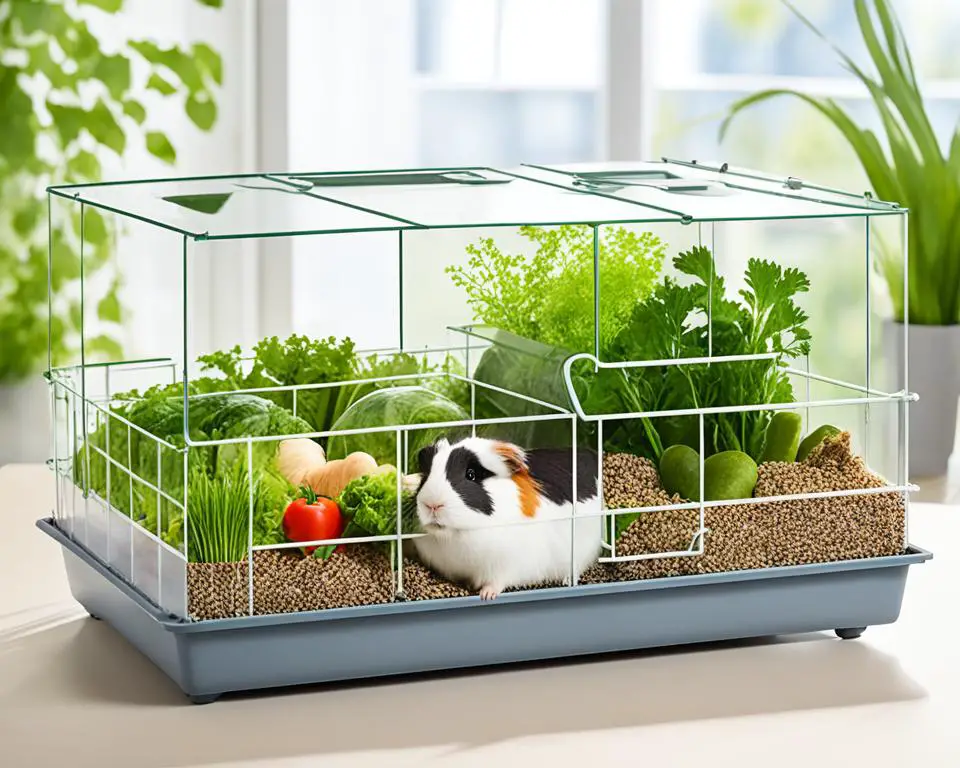
It’s key to create the right home for guinea pigs. They need a big cage with soft bedding and toys to chew on. This helps keep them happy and healthy. Make sure their home lets them run and explore.
Guinea pigs stay healthy between 65-75°F (18-24°C). They don’t do well in very hot or cold places. Keep their home away from too much sun or cold drafts. This helps avoid health troubles.
Keeping guinea pigs safe is crucial. Remove any plants or animals that might hurt them. Choose safe bedding because some kinds can make them sick if they eat it.
Creating a well-designed and maintained environment for guinea pigs not only ensures their safety but also promotes their overall health and longevity.
Guinea pigs love to play and be with people. Give them toys and spend time with them. This makes them happy. They also need a friend and enjoy gentle petting from you.
Nutrition for Guinea Pigs
Eating right is very important for guinea pigs. They should have lots of hay and some vegetables. They also need vitamin C from food. Giving them a balanced diet helps them stay healthy.
Always have fresh water for your guinea pig. Clean their water bottle or bowl often. This keeps them from getting sick.
Good food and the right environment keep guinea pigs well. They need these things to live a long, happy life.
Summary
Getting the right home for guinea pigs is a must. A big cage with soft bedding and toys is ideal. This lets them be active and happy. Keeping the temperature right and the place safe is also important.
Don’t forget, guinea pigs like to play and need time with you. They need good food, a clean home, and your love. This makes them thrive.
Conclusion
Guinea pigs are lovely pets that make their owners happy. They usually live for about 5-6 years. But, with the right care, they can live even longer.
Different things affect how long guinea pigs live. These include their genes, what they eat, where they live, and how much they socialize.
It’s vital to give them foods high in fiber and vitamin C. This includes lots of grass hay, some fresh veggies, and a few pellets. A good home with the right temperature, safe housing, and seeing the vet often is also very important.
Guinea pigs need friends to be their best selves. They love being with others of their kind. Having a playmate helps them stay happy and healthy.
Caring for guinea pigs means more years of fun and love. Giving them attention and proper care can lead to a life full of joy for both the pets and their owners.
FAQ
How long do guinea pigs live?
Are guinea pigs social animals?
What factors can influence the lifespan of guinea pigs?
How do domestic guinea pigs compare to wild guinea pigs in terms of lifespan?
How does the reproductive cycle of female guinea pigs impact their lifespan?
Do different guinea pig breeds have variations in lifespan?
What are some tips for extending a guinea pig’s lifespan?
How can I create a suitable environment for my guinea pig?
How can I ensure the longevity of my guinea pig?
Source Links
- https://www.humanesociety.org/resources/guinea-pig-right-pet-you
- https://www.petmd.com/exotic/how-long-do-guinea-pigs-live
- https://www.rspca.org.uk/adviceandwelfare/pets/rodents/guineapigs




